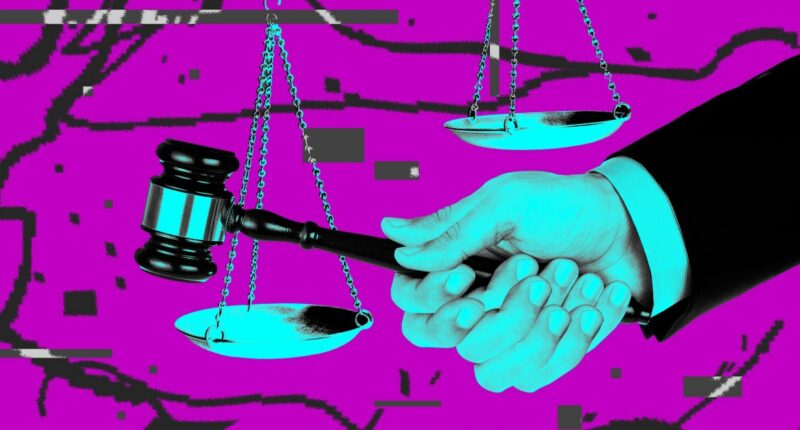Share this @internewscast.com
Senate Bill 53, the landmark AI transparency bill that has divided AI companies and made headlines for months, is now officially law in California.
California Governor Gavin Newsom signed the “Transparency in Frontier Artificial Intelligence Act” on Monday, authored by Sen. Scott Wiener (D-CA). This marks the second iteration of the bill, as Newsom previously vetoed the initial version — SB 1047 — last year due to concerns it was overly restrictive and might hinder AI innovation in California. The original version required all AI developers, notably those with models having $100 million or more in training costs, to test for certain risks. Following the veto, Newsom tasked AI researchers with developing an alternative, resulting in a 52-page report that served as the foundation for SB 53.
Several recommendations from the researchers were incorporated into SB 53, such as requiring large AI firms to disclose their safety and security processes, granting whistleblower protections to employees at AI companies, and sharing information directly with the public for transparency. However, certain suggestions, like third-party evaluations, were omitted from the report.
According to a release, the bill mandates large AI developers to “publicly publish a framework on [their] website describing how the company has incorporated national standards, international standards, and industry-consensus best practices into its frontier AI framework.” Large AI developers must also publish any updates to their safety and security protocols, along with the rationale, within 30 days. Nonetheless, this requirement is not necessarily a victory for AI whistleblowers and regulation supporters. Many AI companies lobbying against regulation suggest voluntary frameworks and best practices, which can be interpreted as guidelines rather than enforceable rules, with minimal punitive measures.
The bill introduces a novel mechanism for both AI firms and the public to “report potential critical safety incidents to California’s Office of Emergency Services,” according to the release. It also “protects whistleblowers who disclose significant health and safety risks posed by frontier models and establishes a civil penalty for noncompliance, enforceable by the Attorney General’s office.” Furthermore, the release states that the California Department of Technology will recommend annual updates to the law “based on multistakeholder input, technological developments, and international standards.”
AI companies expressed mixed reactions to SB 53, though most initially opposed the bill, either publicly or privately, arguing it might force companies to leave California. Aware of the stakes, they realized California, with its nearly 40 million residents and several AI hubs, exerts substantial influence over the AI industry and potential regulatory measures.
Anthropic publicly endorsed SB 53 following weeks of negotiations regarding the bill’s wording, while Meta, in August, established a state-level super PAC to help shape AI legislation in California. OpenAI, conversely, lobbied against such legislation in August, with its chief global affairs officer, Chris Lehane, advising Newsom that “California’s leadership in technology regulation is most effective when it complements effective global and federal safety ecosystems.”
Lehane suggested that AI companies should be able to get around California state requirements by signing onto federal or global agreements instead, writing, “In order to make California a leader in global, national and state-level AI policy, we encourage the state to consider frontier model developers compliant with its state requirements when they sign onto a parallel regulatory framework like the [EU Code of Practice] or enter into a safety-oriented agreement with a relevant US federal government agency.”







